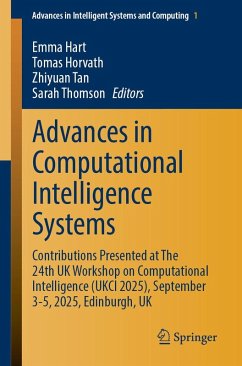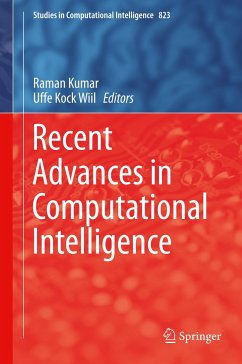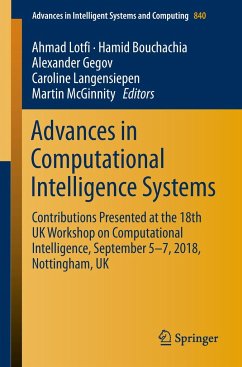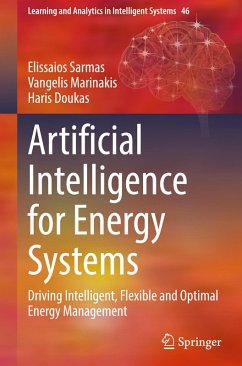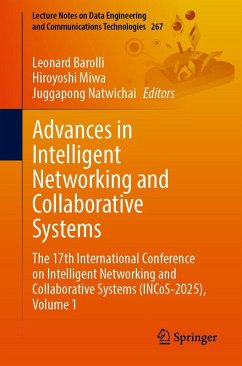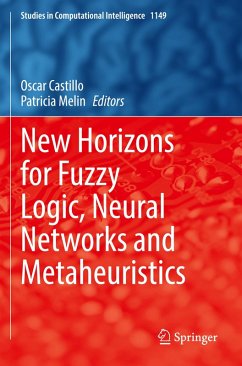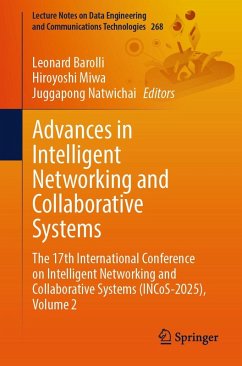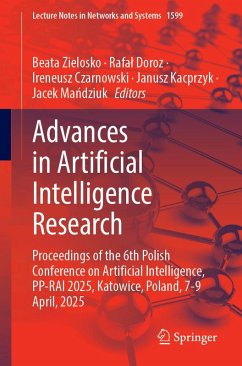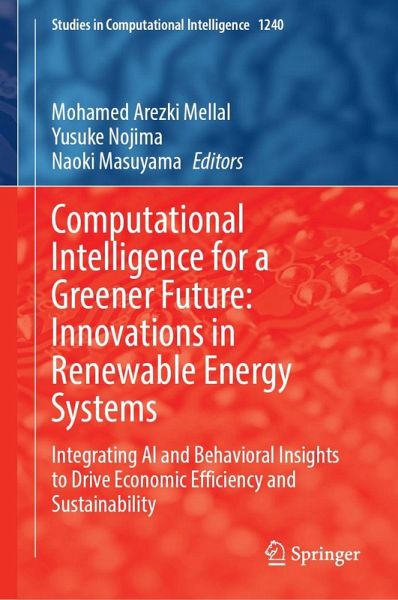
Computational Intelligence for a Greener Future: Innovations in Renewable Energy Systems
Integrating AI and Behavioral Insights to Drive Economic Efficiency and Sustainability
Herausgegeben: Mellal, Mohamed Arezki; Nojima, Yusuke; Masuyama, Naoki

PAYBACK Punkte
61 °P sammeln!
This book aims to explore the intersection of computational intelligence techniques and renewable energy technologies, serving as a valuable resource for researchers, engineers, and policymakers. By compiling cutting-edge research and innovative applications, it seeks to demonstrate how CI can contribute to a more sustainable future, highlighting both theoretical advancements, practical implementations, and future directions.Nowadays, as the world faces the pressing challenges of climate change and the depletion of fossil fuel resources, the shift toward decarbonization and renewable energy sy...
This book aims to explore the intersection of computational intelligence techniques and renewable energy technologies, serving as a valuable resource for researchers, engineers, and policymakers. By compiling cutting-edge research and innovative applications, it seeks to demonstrate how CI can contribute to a more sustainable future, highlighting both theoretical advancements, practical implementations, and future directions.
Nowadays, as the world faces the pressing challenges of climate change and the depletion of fossil fuel resources, the shift toward decarbonization and renewable energy systems has become a vital priority. Innovations in computational intelligence (CI) offer promising opportunities to optimize and manage energy production, distribution, and consumption. By leveraging techniques like nature-inspired optimization algorithms, fuzzy methods, machine learning, and clustering, researchers and practitioners can enhance the efficiency and management of renewable energy systems.
Nowadays, as the world faces the pressing challenges of climate change and the depletion of fossil fuel resources, the shift toward decarbonization and renewable energy systems has become a vital priority. Innovations in computational intelligence (CI) offer promising opportunities to optimize and manage energy production, distribution, and consumption. By leveraging techniques like nature-inspired optimization algorithms, fuzzy methods, machine learning, and clustering, researchers and practitioners can enhance the efficiency and management of renewable energy systems.



